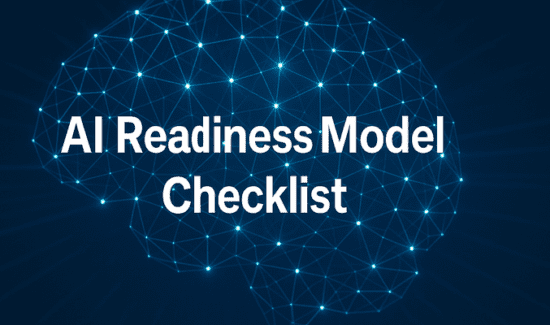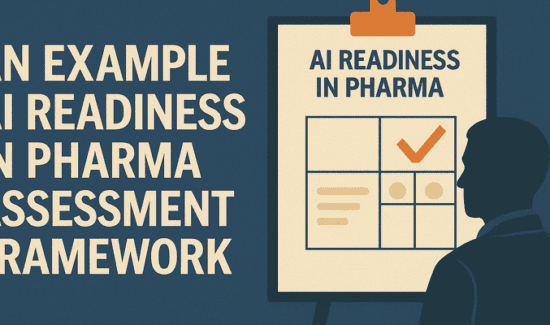Leading Europe’s Digital Revolution: A Vision for Making Europe an AI and Digital Powerhouse

Schneider Electric’s Peter Weckesser brings insight on leading Europe’s digital revolution and offers a vision for making Europe an AI and digital powerhouse. This article originally appeared on Solutions Review’s Insight Jam, an enterprise IT community enabling the human conversation on AI.
Full stop, Europe is behind in digitization and AI innovation.
According to the World Economic Forum, only 45 percent of European companies have adopted the cloud compared to 94 percent of major companies worldwide. What’s more, when we look at AI usage, the U.S. and Europe are on different paths regarding AI adoption. For example, U.S. productivity growth has been significantly higher than Europe’s, with a 6 percent increase in the U.S. compared to 0.6 percent in Europe since 2019.
So what does this mean for the future of Europe in terms of both digitization and economic health? If Europe does not course correct, it is on a path to damaging its long-term competitiveness.
With Europe’s aging workforce combined with a cautious approach to technological innovation and regulation, Europe may hinder its ability to capture AI-driven productivity growth compared to the U.S.
And with this stage set, enter the world of DIGITALEUROPE, the most influential association for the digital industry in Brussels In my role as President of Digital Europe I plan to support the organization and Europe at large on its journey into a new era of digitization and AI utilization. As we learned from a recent study: “The Critical Tech Gap” change is necessary for Europe to not only keep up with the rest of the world, but to compete and succeed.
Acting Fast Before It Is Too Late
Now is a crucial time for Europe and for digital policy, as we face new challenges and opportunities amidst technology breakthroughs and the energy transition.
At Schneider Electric, a global leader in energy management and industrial automation, where I serve as the Chief Digital Officer, I have seen first-hand how digital transformation can drive efficiency, sustainability, and innovation across sectors and regions. That’s why I am passionate about building a strong and competitive digital industry in Europe. As the President of DIGITALEUROPE, I plan to support the digitalization of the European economy and society, and I have identified the following priorities for the months ahead:
1. First and foremost, my top priority is to engage with the new EU institutions and European policymakers and promote a simplified and balanced digital regulatory framework that fosters innovation, investment, and inclusion in a digital single market while creating a level playing field for European digital companies.
To achieve this, we need to enhance the cooperation among European companies and policymakers, who represent the diversity and excellence of the European digital ecosystem. DIGITALEUROPE has done an outstanding job in shaping the digital agenda and advocating for a stronger, more innovative, and competitive digital landscape across the EU.
Digital Europe has already established the basis with our manifesto, A Digital Powerhouse, which outlines our vision and recommendations for a digital and green recovery in Europe. We have also identified the key policy areas where we can make a difference, such as the Digital Services Act, the Digital Markets Act, the Data Governance Act, the AI Act, and the Green Deal. We will continue to provide our expertise and insights to the EU decision-makers, and to seek constructive dialogue and partnership with all the relevant stakeholders.
One of the key barriers to AI innovation in Europe is the complexity and fragmentation of the regulatory environment. European businesses face a higher regulatory burden compared to their global competitors, which stifles innovation and slows down the pace of digital transformation.
However, we also need to be pragmatic and selective in the way we prioritize our actions, and to focus on the issues that have the biggest impact on our industry and our society. We need to create a level playing field and a digital single market for all Europeans to navigate the digital rules and their implementation.
We need to support the development and deployment of key digital technologies, such as cloud, AI, IoT, 5G, and cybersecurity, and to foster digital skills and literacy among citizens and businesses. This will ensure that the digital transition is fair, ethical, and human-centric, and that it contributes to the green transition and the sustainable development goals.
To overcome these challenges, it’s imperative that we simplify, merge, and consolidate legislation across the EU to create a more conducive environment for AI development and deployment.
2. My second priority is to support Europe in its Competitiveness with the rest of the world when it comes to AI innovation, which we will address in three key areas:
- Addressing the Competitiveness Gap: Europe is currently lagging in the adoption and development of critical AI technologies, which is significantly affecting its global competitiveness. Only 6% of global venture capital (VC) funding for AI startups is directed towards EU companies, placing Europe behind in 7 out of 8 critical technologies that will define our future. This gap is a clear indication of the urgency with which Europe needs to prioritize AI to not just compete but to lead in this transformative field.
- Boosting Investment in AI: The current level of EU funding for digital innovation, including AI, is inadequate. To be competitive, we must push for a substantial increase in investment, aiming for at least 25% of the EU budget to be dedicated to digital initiatives. This includes establishing a functioning capital markets union and coordinated tax incentives that will attract and retain AI startups in Europe, ensuring they have the resources needed to grow and compete on a global scale.
- Forging International Partnerships: In the global tech landscape, no region can innovate in isolation. Europe needs to engage in new and deeper international digital partnerships, especially in AI, to secure supply chains and access the latest technology. By collaborating with global leaders in AI, Europe can accelerate its innovation capabilities and ensure it remains at the forefront of AI advancements.
Creating a Digitally Native Europe
Europe must take decisive and coordinated action to enhance its competitiveness in digital and AI. This involves addressing regulatory challenges, increasing investment, fostering international partnerships, and accelerating AI adoption across all sectors. Only by doing so can we ensure that Europe does not just keep pace with the rest of the world but leads in the digital and AI revolution.
I am confident that, together with all the other amazing and innovative companies as well as representatives of national trade associations in DIGITALEUROPE, we can achieve these goals and make Europe a digital powerhouse.



